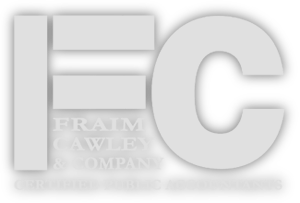“I don’t care about money. I’m focused on other people”
“My business is about helping others, not profit”
“My company has a mission to do good. I’m not worried about the bottom line”
There’s nothing wrong with being altruistic. Helping others is one of the single most worthwhile things we can pursue. And it is certainly true that there is no need for us to be unduly focused on material things. Having money is not going to make us happy, as most wealthy people will attest.
But these mindsets often present very real difficulties when applied as the cornerstone of a business.
How many times have you heard people say things similar to the quotes at the beginning of this article? Were any of those people successful?
I’ve heard the above quotes (or some variation of them) many, many times. And not once were they spoken by a successful entrepreneur. (And interestingly they are often said by people who tend to be rather insufferable. Those who feel the need to talk about how generous they are, and tell everyone the nice things they do are rarely truly generous.)
Let’s discuss the three major issues with this mindset and why it invariably leads to failure.
Incorrect Prioritization
Helping others is great, but only if we can help ourselves. Are we actually in a position to do that yet? Are we self-sustaining, taking care of ourselves independent of the financial support of other people or even institutions? Or might we ourselves be a drain on others in some fashion while we are touting our supposed focus on giving to those in need?
Is our business profitable? Is it sustaining us as our primary source of income? And is it clear that it will continue to do so – even if we run into significant economic turbulence?
If so, we can help others out to our hearts’ content. But if not, we need to get our priorities in order. We need to take care of ourselves before we try to take care of other people.
If we go out of business or never turn a profit, we aren’t going to be helping anyone.
Business IS About Profit
Sorry guys and gals. That’s the cold, hard truth of the matter: business is about profit. If you don’t have profit, you don’t have a business.
In “The Millionaire Booklet”, Grant Cardone says that “settling for a middle-class life is a compromise and it’s selfish.” The entire booklet is his contention that becoming ultra-wealthy is the only ethical thing to do, because then you are in a financial position to help others. He argues that those who settle for less are actually selfish: selfish of their time, their energy, and their resources.
That argument is admittedly hyperbolic. And I don’t mean to suggest that striving after enormous wealth should be one’s mission in life. I don’t know any reasonable person who would agree that wealth is the pathway to becoming a better person. In your personal life, there are much more worthwhile pursuits.
But for business? It’s spot on. The booklet notes that “when you compromise your finances, you
become unable to help others because you are struggling to simply take care of yourself.”
Successful businesses and their owners donate tremendous sums of money to charitable causes. But that’s because of their focus on money, not in spite of it. That excess cash (and the donations that follow) are a byproduct of their focusing on profitability first.
In an extreme, yet familiar, example consider Bill Gates and his Gates Foundation. He has donated billions (with a “b”) of dollars to worthy causes. And that is truly admirable. But when he and his buddies started Microsoft, was their initial mission all about charitable giving? No, they set out to develop a technology, have it accepted, and make money from it. And they worked tirelessly to make that vision a profitable reality. Then when it did succeed (to a degree they probably never envisioned) they were in a position to be generous and make life-changing contributions to society. But not before they made the money.
Justification for Failure
This is the least recognized factor, but perhaps the most insidious one: it provides an excuse and justification for why the business does not succeed.
Take my business as a counterpoint. I make it very clear that my business is about profit. I enjoy what I do, but this is not a hobby. Profit is the goal. And if I am profitable, then I can continue to do good work for my clients that improves their financial lives. If there is no profit, then I cease to be able to provide that benefit.
So if my business fails, then I failed. And there’s no excuse I can come up with to justify that failure.
But for the people who talk nonstop about their mission, they always have that as an excuse to fall back on:
- Not making much profit? It must be because you’re so focused on other people!
- Having to drive for Uber and get a part-time job to pay your rent? That’s fine, you don’t care about money!
- Had to close up shop completely? It’s not because you actually failed, it’s because you cared too much!
That’s why those who are the most vocal about their altruistic endeavors are the least likely to succeed. They rarely make enough to truly support themselves (let alone other people), which is why the title calls them “wantrepeneurs”, not entrepreneurs. Their “selflessness” (and I say that somewhat sarcastically, since people who are so vocal about how wonderful they are, are seldom sincere) is always available as a justification for their lack of success. And it ends up being a crutch that holds them back from ever achieving it.
(This is first-cousin to a similar excuse that we often hear: “My business failed because I wasn’t willing to be greedy and underhanded and unprincipled like all those other people.” Yeah, right.)
Conclusion
Being generous is a wonderful thing to which we should all aspire. Helping others is something we should all do. But for a business, making money has to be the primary goal. If we focus on other things, we will likely fail. And worse yet, we won’t learn any lesson from the experience because we will blame the failure on our astounding selflessness.
But if we focus on profit first, then we are much more likely to succeed. And then we can actually help other people for the long-term.
Any accounting, business, or tax advice contained in this communication, including attachments and enclosures, is not intended as a thorough, in-depth analysis of specific issues, nor a substitute for a formal opinion, nor is it sufficient to avoid tax-related penalties.




